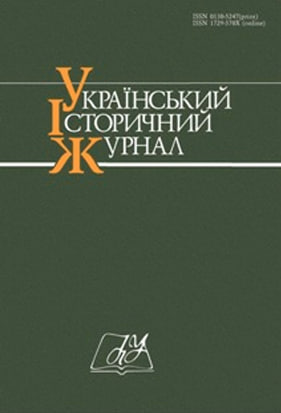The Famine of 1946—1947 in Ukrainian SSR: L. Kaganovich’s Mission
DOI:
https://doi.org/10.15407/uhj2025.02.042Keywords:
Ukrainian SSR, drought, famine, Stalin, Kaganovich, Khrushchev, grain procurement, socio-political and socio-economic totalitarian systemAbstract
The purpose is to identify the causes and consequences of L. Kaganovich’s secondment to the Ukrainian SSR in March 1947.
The methodological basis is the principles of historicism, systematics, historical biography, and content analysis of sources.
The scientific novelty lies in the fact that the authors, relying on documents of party and state institutions, as well as archival sources of the communist security services, avoid a one-sided, biased approach to the problem under study, and strive to recreate a realistic picture of events related to L. Kaganovich’s mission to Ukrainian SSR during “the famine of the victors”, that is, the post-war Soviet famine.
Conclusions. The famine of 1946—1947 demonstrated that the late Stalinist regime’s policies toward the countryside exacerbated its wartime destitution and its response to mass drought in 1946 contributed greatly to the development of famine. A symbol and concrete manifestation of this was the appearance in Ukrainian SSR in March 1947 of one of the most influential Stalinists, L. Kaganovich. He headed the Communist Party of Ukraine (Bolsheviks) and the key tasks of his mission were to ensure the implementation of the grain procurement plan despite the poor position of the peasantry, as well as monitoring N. Khrushchev’s managerial qualities. The latter dared to ask for food aid, which raised doubts in the Kremlin about his ability to fulfill the demands of the centre and suspicions that N. Khrushchev was too susceptible to local influences. L. Kaganovich did coordinate measures to forcibly seize grain from the peasants to fulfill the grain procurement plans. At the same time, however, the situation forced L. Kaganovich to side with N. Khrushchev’s position, and together they appealed for aid for starving Ukraine, demonstrating how desperate the situation was and complexities of the state’s role in contributing to but also alleviating famine.


